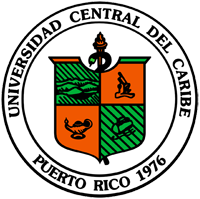Associate Professor 
Ph.D., 2017, Universidad Central del Caribe
ORCID ID# 0000-0002-6036-1217
Academic Department(s)
Biochemistry
Research Area
Neuroglia, Diabetes, Stroke, Metabolism
Current Projects
Our current research interest is to understand the basic mechanisms underlying the pathway whereby hyperglycemia downregulates astrocytic Kir4.1 potassium channels. Hyperglycemia which occurs in brains of diabetics can disrupt the normal homeostatic functions of astrocytes. The consequences of this include: 1) impairments in detoxification of methylglyoxal (MG) and high levels of advanced glycation end (AGE) product formation, 2) an increase in abnormal brain function and 3) exacerbation of brain injury that can be produced stroke. Diabetes affects vital tissues and organs of the human body, significantly reducing their function and ultimately leading to their failure. The brain, which is the central organ that manages the majority of the body functions, is highly at risk. Diabetic patients have a higher risk of suffering from a stroke when compared to non-diabetics and the brain damage that occurs may be more severe or extensive if blood glucose levels are high when a stroke happens, but the mechanism remains unknown. Astrocytes play a critical role in protecting neurons by maintaining extracellular homeostasis and preventing neurotoxicity through glutamate uptake and potassium buffering.
Project#1: Astrocytes disfunction under high glucose levels: Relevance to stroke
Short- and long-term hyperglycemia can lead to severe alterations of cell metabolism such as changes in metabolites. However, the pathophysiological mechanism and the metabolic alterations involved in neuropathologies such as epilepsy in diabetic patients have not been clarified. Metabolomic technology will allow us to address this by identifying changes in metabolites and their possible role in the regulation of astrocytic function. Our working hypothesis is that elevated levels of glucose induce changes in a specific metabolic pathway that will alter astrocytes normal supportive functions.
Project#2: The Role of Glyoxalase in Astrocytic Supportive Function under Hyperglycemic Conditions.
The glyoxalase system is a set of enzymes that carry out the detoxification of MG through the help of glyoxalase I and II; but this system is impaired when high levels of MG are produced. The main purpose of this work is to elucidate the role of the glyoxalase system on the supportive functions of astrocytes when grown in hyperglycemic conditions. Our working hypothesis is that elevated levels of glucose induce critical changes in the glyoxalase system, thereby, altering the normal supportive function of astrocytes.
Availability for Students
No
Publications
https://www.ncbi.nlm.nih.gov/pubmed/?term=Rivera-Aponte+DE
Contact Information
Universidad Central del Caribe
P.O. Box 60327
Bayamón, PR 00960-6032
Tel.: (787) 798-3001 x2032
e-mail: david.rivera@uccaribe.edu
